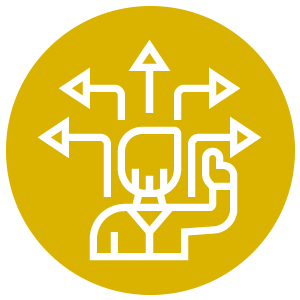I. Internal Assessment
At the Indian International School-DSO, assessment is a continuous process that provides information on the learning and progress of the pupils. It is an integral part of our planning, evaluating, recording and reporting cycle. It is not a stand-alone activity; it measures student performance at any given point in time. It is also an ongoing process of gaining information to promote future success in learning.

Kindergarten:
The kindergarten operates on a purely skill-based ongoing evaluation pattern, wherein students are continuously observed and evaluated on the development of their foundational skills in the various learning areas including life skills. Teachers, through discussion and observation, make detailed assessments of each child’s progress, keeping careful records that build a comprehensive picture over the course of the year.
The academic year is divided into three terms – April to June, September to November and December to March.
The ‘I can statements’ shared on a monthly basis and skill descriptors at the end of each term give the parents a clear insight into the student’s progress over time.

Primary (Grades 1-5):
We follow a ‘No Assessment Policy’ for the Primary phase, ensuring that our young learners transition steadily and at ease from the foundational stages to the more formally structured phases of learning. There are no formally scheduled assessments, and the evaluation of students’ learning and progress happens through multiple assessments, skill-based assessments, subject enrichment activities and notebook submissions. Grade 5, being a transitional grade between the Primary and the Middle, a Review Assessment of 10 marks is conducted at the end of each term. This is to gradually induct the students into the formal assessment pattern. The academic year is divided into three terms – April to June, September to November and December to March. The ‘I can statements’ shared on a monthly basis and skill descriptors at the end of each term give the parents a clear insight into the student’s progress over time.

middle Middle (Grades 6-8):
Grades 6 – 10 operate on a definite and structured assessment pattern. The Assessment scheme is designed to measure the achievement of all students in a consistent and comparable manner. Assessments are carried out throughout the year with the Term-end Exams and the Periodic Tests carrying more weightage. The academic year is divided into two terms – April to October and October to March. Formative assessments happen through multiple assessments, subject enrichment activities and notebook submissions.

Secondary (Grades 9&10):
The term-structure, assessment pattern and timelines are strictly in adherence with the CBSE guidelines and specifications. These are revised as per the directives of the CBSE from time to time as per the changing scenarios. The formal assessment components comprise of the periodic tests, multiple assessments, subject enrichment activities and notebook submissions. Grade 9 students appear for an Annual Examination at the end of the year. The Grade 10 students appear for a Model Exam which serves as the preparatory exam for the board exams conducted by the CBSE.
An overview of the formative assessment components:

Multiple Assessments (MA):
Ongoing assessments in diverse forms to evaluate the progress of learners on a regular basis. These may range between oral tests, quizzes, graphic organizers, art-integrated learning consolidations, etc. The academic year is divided into two terms – April to October and October to March. Formative assessments happen through multiple assessments, subject enrichment activities and notebook submissions.

Subject Enrichment (SE):
Activities that cater to the development and evaluation of specific skills in the target subjects. For eg. the assessment of speaking and listening in the languages, the skill of inquiry and investigation in Math and Science, etc.

Notebook/e-Portfolio:
A purposeful collection of sample student work that demonstrates student's learning progression, achievement, and evidence in key areas of learning. The collection can include assignments, tasks and reports of various activities undertaken by the students. The E-portfolio serves as a ready reckoner for all the stake holders to get a quick grasp of the learning process.
II. International Benchmark Tests
We, at IIS-DSO stay abreast with the latest trends in educational standards and expectations worldwide and also work robustly through our participation in:
The Cognitive Abilities Test (CAT 4), a suite of tests that assesses a student’s reasoning (thinking) abilities in key areas that support educational development and academic attainment from Grade 1 onwards.
The ISA (International School’s Assessment) by ACER monitors students’ performance (Grades 3-9) over time and confirms that their internal assessments are aligned with international expectations of performance. It is closely aligned to PISA in the assessment of reading, mathematical literacy and scientific literacy.
We also work ardently towards the successful attainment of the UAE National Agenda, launched by H.H Sheikh Mohammed Bin Rashid in the year 2014, which includes a set of educational targets that pave the way towards the next phase of educational development in the UAE.
The PISA (students of 15 years) & TIMSS (Grades 4 & 8) National Agenda targets indicate the high aspirations of the UAE to become a leading country in education and we, as educators with a futuristic vision, join hands in this educational endeavor. The development of the skills of critical thinking, problem solving, reading, real-life application of knowledge and continual evaluation of the development of these skills is facilitated through Problem-Solving Skill (PSS) tests and the carefully planned Skill Builder Program.
